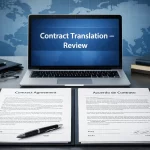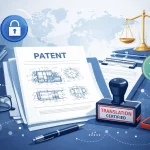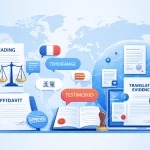Translation service providers typically offer everything from basic translation work (or general translation) to specialised translation. These services are specifically designed to meet the various needs of businesses that are building their presence in the global economy. Before diving into the role of specialised terminology in translation work, let’s discuss first the difference between general and specialised translation.
What are general translation services?
The job of a translator entails much more than simply translating a line from one language to another. It’s quite rare for a piece of writing to be worded exactly as it was when it was first written. Translators must alter the language and concepts in the translated version to make them understandable. The most basic types of translation, referred to as general translation, usually do not necessitate professional topic expertise. This isn’t difficult for people in their industry as long as the translator is fluent in both languages and the project merely requires simple translation.
What is a specialised translation?
Now, specialised translation is a little more challenging than standard translation. This sort of translation is more appropriate in specific fields such as health and medical care, legal work, and marketing. These specific sectors require a specialised translator who has mastered this type of technical jargon in both languages. Because of the extremely specialised technical information and multilingual abilities necessary, this type of translation is difficult. If a translator possesses this level of expertise in specialised terminology, they have a highly valuable skill that can benefit clients.
What specialised terminology is
According to the Cambridge Dictionary, terminology refers to special words
All translations are built on the foundation of terminology. Words, phrases, and technical jargon of specialised content often target a specific audience, and therefore should be translated in the context of their jargon in order to deliver a message effectively.
When professional translation started gaining momentum, technical translators began to create specific word lists for translation purposes. These word lists have two columns, one containing terms in the source language and the other containing the same phrase in the target language. This is pretty much how machine translation works today. It has an extensive database of word lists in different language pairs, and translation of about 2000 words can be done in a matter of seconds.
However, machine translations can only efficiently translate specialised terminology if that system’s database is well stocked with the required vocabulary.
Creating a specialised terminology database
Translation service providers now have the option of creating their very own specialised terminology database when dealing with a technical document. This is basically an extended dictionary of sorts where keywords and phrases specific to a company or industry are listed.
This is important because there are industries or businesses that have their own jargon and preferred word choices in their published content. Having a special vocabulary will avoid confusion, particularly among their clients. Therefore, before translation work can begin, these specialised terminologies must be defined and managed efficiently.
Creating a specialised terminology database will result in consistent usage of terms from one document to another, or from the beginning of a published content up to its final page.
Also, if a translator needs to look up a particular term, he only needs to look it up in the database and instantly get a result.
The importance of a specialised terminology database becomes even more obvious when a team of translators is working on the same project. Having this database ensures that all key terms are translated in the same way all throughout the document.
Translating for a targeted audience
Basic translation dictates that the output should be simple and easy to read. Common everyday words should be used. Sentences must be brief and to the point. However, this does not hold true when doing translation work for a targeted audience. This time, the translator should know and use the audience’s specific terminology to communicate efficiently.
When doing translation work for a group of professionals such as doctors, engineers, or scientists, the translator can use their jargon to get the key points across proficiently. Specialised words or terminologies will often make your output easier to understand. Using that particular field’s jargon facilitates better communication. Specialised terminology, therefore, is more concise when used with an audience who understands the technical terms.
Using specialised terminology also has a significant SEO benefit because your target audience is likely to use these terms in search queries. So, not only are you getting your point across succinctly, but you are also optimizing your content to reach a wider targeted audience when you use specialised terminology.
Conclusion
As companies expand globally and try to reach multicultural markets with a target specialization, translation service providers have now become your indispensable partners. We at Circle Translations are more than qualified to help you reach your specific targets. We offer specialised translation services that utilize specialised terminologies to benefit your company.
We can pair you up with a team of expert translators across all industry segments to translate content that will boost your online presence. We can help you expand your global reach while targeting a specific industry that will benefit from your company. If you are looking for these specialised translation services, contact us today and let us help you reach your goal.
Subtitles

Professional and Accurate Subtitle Services for your Videos.
- Video subtitles specifically tailor-made for improving accessibility.
- Using highly experienced subtitlers with years of industry experience.
- Professionally written and expertly timed.
Translation

We help the world’s top companies translate their content in over 73 languages!
- We localize content for internet websites, games, travel, cryptocurrencies, and more
- Expand your global audience by adding different languages.
- We work only with qualified translators and experienced content creators
Audio translation

Ensuring full accessibility for Blind and visual impaired audiences.
- Visual descriptive events as they occur in the video.
- Working with top audio describers to perfectly describe what is happening on-screen
- Professional sound recording.









